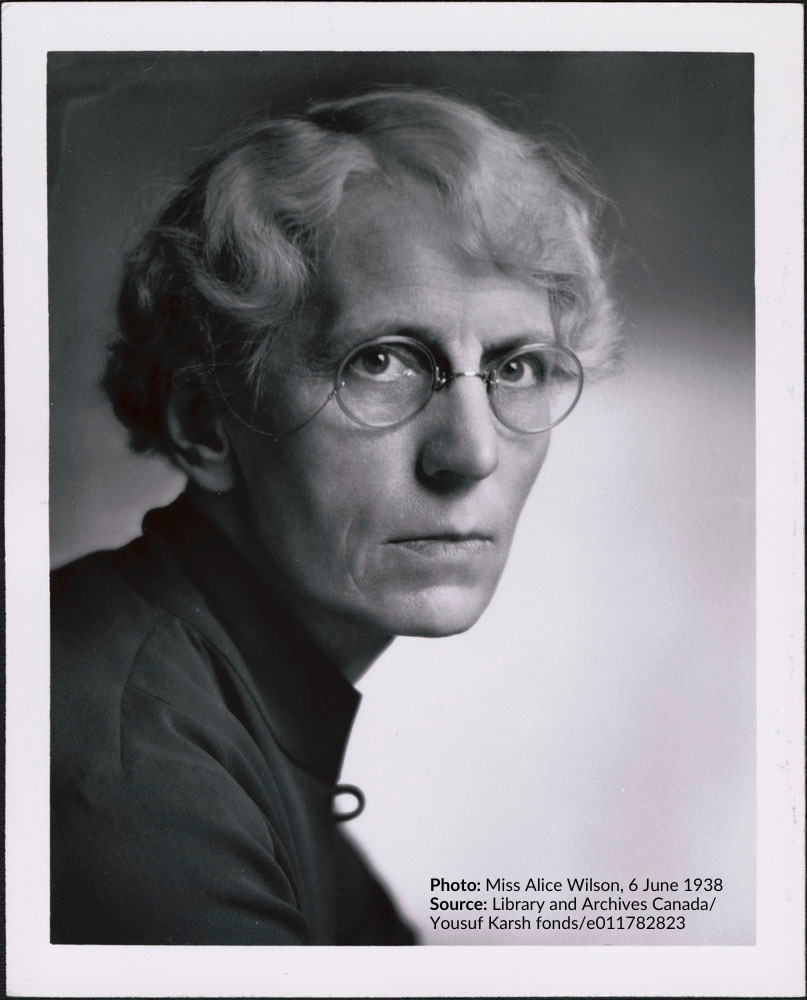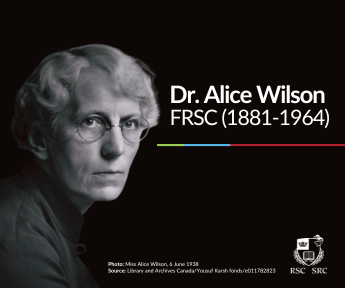In celebration of Women's History Month, we are spotlighting Dr. Alice Evelyn Wilson, FRSC (1881-1964), a pioneering Canadian geologist and the first woman inducted into the Royal Society of Canada in 1938.
Alice Wilson was born in 1881 in smalltown Ontario. While she was raised in a family of academics, it is suggested that her childhood summers spent exploring the outdoors are what sparked her deep passion for geology, shaping the trajectory of her career.

Wilson began her formal education in 1901 at Victoria College in Toronto, initially pursuing a degree in languages and history. However, health issues forced her to drop out of school, marking the first of many adversities she would overcome.
In 1907, after taking time to recover, Wilson became an assistant at the University of Toronto’s Museum of Mineralogy. Two years later, she joined the Geological Survey of Canada (GSC) as a clerk in the invertebrate paleontology section. Under the mentorship of Percy Raymond, the GSC’s chief paleontologist, she excelled and was encouraged to complete her degree, which she did in 1911. Once she completed her degree, Wilson returned to the GSC and secured a permanent role as the organization’s first female geologist.
Throughout her 54-year career at the GSC, Wilson faced numerous challenges, struggling to be taken seriously as a female scientist in a male-dominated industry. The GSC’s policies prevented her from conducting fieldwork, a crucial part of her research, as it required her to travel alone to remote areas with groups of men. Refusing to let this hinder her progress, Wilson found a workaround and persuaded the GSC to allow her to conduct solo expeditions in the Ottawa-St. Lawrence Valley, a region close to home. Her request was granted, and she explored the area on foot or by bicycle. When she needed to venture farther and was denied access to a car, Wilson decided to buy one herself.
Additionally, Wilson repeatedly applied for leave to pursue her doctorate, but for years, her requests were denied while those of her male colleagues were granted. It wasn't until she received a scholarship from the Canadian Federation of University Women that she finally gained the financial support and time needed to complete her studies.
Despite these challenges, Wilson's tenacity led her to produce over 50 scientific publications, create detailed maps, and establish a national typological collection of invertebrate fossils—one of the world’s largest and most significant, which has greatly contributed to our understanding of the field.
In addition to being appointed a Fellow of the Royal Society of Canada, she was made a Member of the Order of the British Empire in 1935 and became a Fellow of the Geological Society of America in 1936. The GSC named Wilson an assistant geologist in 1936 and promoted her to associate geologist in 1940.
Dr. Alice Wilson passed away on April 25, 1964, at the age of 83. In her honour, the Royal Society of Canada established the Alice Wilson Award in 1991. This award recognizes three outstanding women each year who are entering postdoctoral research careers in the Arts and Humanities, Social Sciences, or Science.
Wilson's legacy endures in geology and academia, paving the way for future generations of female scientists. Her contributions continue to inspire recipients of the Alice Wilson Award, Fellows of the RSC, and researchers who are advancing scholarship to build a better world.
This account draws from sources including the Government of Canada, the Royal Society of Canada, and the Canadian Encyclopedia.


